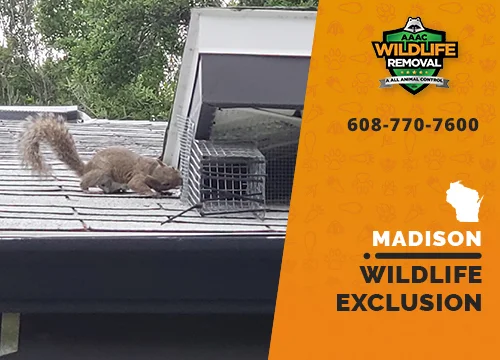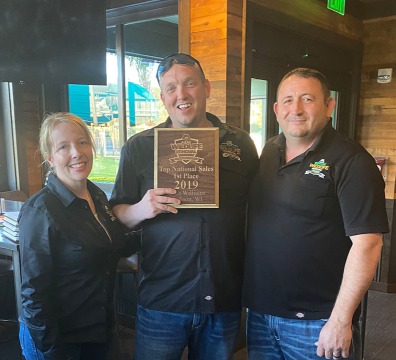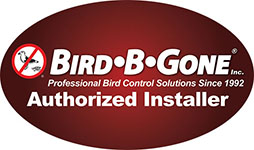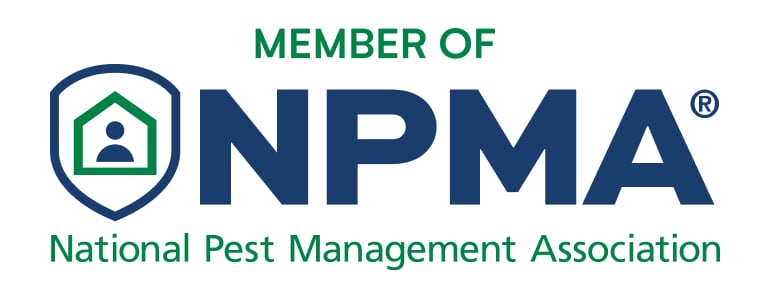
What is Wildlife Exclusion?
Exclusion involves sealing the entry points of animals into your home and business. This will prevent them from coming back in. This is easier than trying to exclude wildlife by yourself. You can seal all entry points so that they cannot come in.
AAAC Wildlife Exclusion Services provides humane removal services for wildlife that pose a threat to your business or home. Exclusion is done safely and correctly by our highly-trained staff.
We can help you with any animals that may be living under your house, or in the walls. We will seal off all animal entry points that we find, including sealing holes in floors, cement cracks around pipes – basically anywhere an animal might find entry into your home or business
How we conduct wildlife control and exclusion services
Nuisance wildlife has somehow found a way into your home or business, and now you’re thinking about trapping them and – maybe even getting rid of them. However, trapping alone won’t fix your problem. The first infestation might be exterminated, but without wildlife exclusion, you’re just waiting for the next one to emerge. These are the steps that we use to end the cycle of infestations using animal exclusion methods:
Find and seal all entry points:
We start by looking for any access points that animals may use. This could be holes in floors or cement cracks that surround pipes, or any other way an animal might get into your home. This includes holes in roof tiles, soffits and fascia. Then, we block off any access points. Sometimes, this is done by drilling rubber grommets or metal grommets over the hole. This creates a seal. Wire mesh can be used to plug the holes in other cases. We will then cover the hole with weatherproof material to protect it from rain, snow, wind and other elements. Finally, we need to wait to see if any other openings could allow animals into your building before sealing them.
Exclude wildlife using a trap or one-way door
The main entry point that wild animals use in order to enter and exit your property or business is often identified by top pest control companies. We deliberately leave this gap open so we can properly eliminate nuisance wildlife. Once we have identified the problem, we can either place a live trap there or use a one-way door.

One way doors: A one-way door is a good option for those people who don’t want to kill the animal. These doors allow animals to enter but not exit. We slightly open the door, just enough to allow the animal through, but not enough for them to turn around or come out of. Then we place some bait on the other side of the hole, close it, and wait for the animal to go in. They can’t turn around or leave the hole from this side once they’ve headed towards the bait.

Live traps: We place traps close to any openings on the roof or outside that animals might use to enter your home. We can lure the animals into our trap by placing them near these openings. We place bait in the trap and once an animal gets inside, it’s caught! We might need to install a cage trap if we are trying to trap larger animals like raccoons or opossums. It is a wire mesh trapping device that keeps the animal inside. Then technicians from our wildlife removal firm will take it out of your home.
Popular access points for animal entry
To prevent future wildlife infestations, a proper wildlife pest control service operator must check all of the most common ways that squirrels, rodents, bats, rats, mice, raccoons, birds, and other wildlife can use to access your home. AAAC Wildlife Removal is thorough. Here is a list of the most common ways animals can get into your home.

Ridge Vents
Bats usually enter attics via the ridge vent. This is a thin metal strip that runs along the roof edge. To stop this from happening, we can seal off any openings in the side of the vent using a Ridge Guard. After sealing the vents, we can perform a complete roof repair in order to make your home animal-proof. If you have pictures of your roof, we will be able to give you a better idea of if your ridge vents are where the critters are getting in.

Gable Vents
Many homes have gable vents that allow squirrels, raccoons, and other wildlife to get in. These vents are designed to provide airflow to your attic in hot weather and they may be screened over or have a small flap that can easily be pried open from underneath with the animal’s paw. To secure these vents, we can place a wire mesh that allows airflow but not animal entry. We can also seal the vent flaps and repair any damaged or decayed wood that could have allowed critters in.

Dryer Vents
Dryer vents are a popular entryway for rodents and birds. These vents are a common entry point for rodents and birds. Dryer vents provide enough airflow to keep them alive. Therefore, it is crucial that we seal the vents and secure any openings with metal mesh.
The warm airflow that flows through dryer vents is what birds like. As birds use dryer vents to access nesting spaces, you may see an increase in your electricity bills. Common vent guards are the best way to prevent this.

Soffit
Squirrels and raccoons love to enter your attic through damaged soffits. An experienced wildlife removal company will repair any damaged wood that has allowed wildlife to enter your attic and secure it with closures or metal mesh. Your soffit will look as good as new and your rodent family will be gone for good.

Fascia
Another favorite spot for wild animals is the fascia on the house. If you have gutters, the fascia would be under the gutter at your roof’s edge. It is a longboard which covers any gap between the roof’s edge and your eaves. To prevent wildlife from using this access point, we secure all gaps with metal mesh, remove and replace any rotted wood, and then install a metal cover that prevents animal entrances but allows water to flow freely.

Eaves
Raccoons love getting into your home through the roof eaves. Eaves are the areas where the roof meets the sides of your home. To keep wildlife out, our technicians can use metal mesh to close any gaps. Or, we can install special guards that prevent animals from entering.
The Chimney
A chimney is one of the most common entry points for animals into a home. We can either use chimney caps to block this entryway or remove and replace chimney liner if it is necessary to eliminate critters already living in the home.
The chimney is a cozy place for bats, squirrels, and other animals. It is difficult for animal control agencies to inspect this access point due to the risk of fire and venting. We often use flameless heat-detection cameras to find animals in hiding. Or we can simply remove the old liner and cover then replace them once the critter is removed.

Cracks in the foundation
Foundation cracks are rodents’ favorite entry point. We can repair foundation cracks by using a cement-filler compound. Rodents will not be able to enter the walls again. This type of repair is not only animal proof, but it will also enhance the appearance of your home from the outside.

Exposed pipes
All species of rodents just love to get inside the walls of your home using exposed pipes. You can protect your home from rodents by securing any gaps with metal mesh and covering up any pipe openings with a cap. This will stop animals entering your home again, while still allowing for air movement.

Wildlife Damage Repair Service
Once your wildlife exclusion is complete, it’s important to repair the damage that rodents, squirrels, bats, birds, mice, rats, or other pests may have caused. Most wild animals will make their doorway into your home larger by gnawing at it with their teeth or scratching at it with their claws. Some of the damage can be quite ugly.
Our wildlife damage repair services are top-notch among pest control providers. We have the skills and experience required to repair any form of wildlife damage. We can replace damaged drywall, insulation, or wood either by ourselves or with a team. They also have the knowledge needed to repair your home quickly and efficiently to reduce the risk that you will experience future animal damage.
Learn more about Wildlife Damage Repair

Attic Restoration
Your attic may be the victim of a horrendous infestation that could leave it contaminated with urine, feces, and blood. This can leave your attic smelling bad and make it a good environment for mold growth. Our pest control professionals will replace any contaminated insulation using fresh materials that have been treated for moisture and odor. You can also have insulation replaced if it is damaged or chewed by rats, mice, or other pests. This will be done by attaching new material to your attic floor using heavy-duty staples. Our attic repair service will restore your attics to their original glory!
Learn more about Attic Restoration
Wild animal pest control
Exclusion is an effective method of controlling wildlife pests. Wildlife can be humanely trapped, or encouraged to go. Once their home has been sealed, they will not be able to come back in. This article provides information about a professional wildlife exclusion service that resolves the problems caused by wild animals. AAAC Wildlife Removal offers a professional wildlife exclusion service. Call us today!









